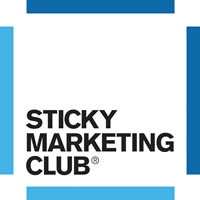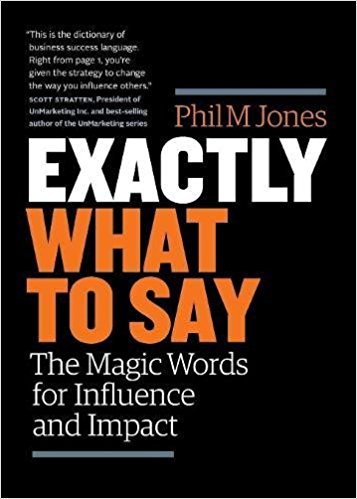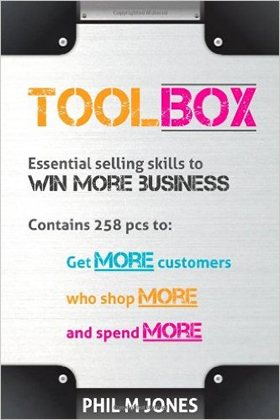Grant Leboff: Phil, one of the really important things that I think is so underutilised by salespeople is testimonials. I just want to talk a little bit more about that. What should salespeople be doing with regard to testimonials? How should they be getting them? It’s important, right?
Phil M Jones: Yes. It’s essential, I think, particularly in today’s day and age, with the level of transparency that exists is if you can’t at least a handful of your existing customers to say you do a decent job, I’m not going to believe you. We’re in the world of reviews. They are everywhere. I think we also wants some bad news, and I might touch back on that in a second, but how they should use them is; firstly, can you get them to people before you meet them?
A simple way you can do that, and there are dozens of ways that this could work, is I think particularly for professionals LinkedIn is a really important platform, is go out of your way on LinkedIn to make gathering real-life testimonials and recommendations a part of your process for your existing customers. Just after you’ve done something awesome, ask the person you did something awesome for to write a testimonial for you. Don’t get one of those nonsense testimonials of, “I met Grant, and he is a really nice guy, and they did a wonderful job for me, you should use him too,” because it’s just fluff.
Make it super specific. When they ask you what do you want the testimonial about, say make it about my exceptional customer service. Make it about the fact that I pick up the phone out-of-hours. Make it about the fact that you always go the extra mile. As specific as a testimonial could be, it’s worth something. If it’s just noise, they are worth having but anywhere near as valuable as those golden ones.
Gather them on places like LinkedIn, and then before you meet somebody for the first time, use LinkedIn as a tool to connect. If I was meeting you for the time today, Grant, what I’d do is I would shoot you a connection request on LinkedIn, just to confirm the meeting. Chances are you will accept the connection request and then have a little peruse of my profile, prod and poke around. You might pump into the fact that some other people have said some nice things.
– Guys if you want to see how many testimonials you can get on LinkedIn, then come find me on LinkedIn and see some of my stuff – Gather them and use them. LinkedIn is one place. Where else would I put them? Online for video. Video testimonials,… it’s just so easy. If you and I are having a conversation and you do some good work for me, then if you picked out your phone and said, “Phil, would you do me favour and just maybe share a little about your experience of doing business with me. Just if I hold my camera up, would you be okay to do that?”
Some people would probably say yes, not all the people, some would. If you record it, you can use it. If you didn’t record it, you’ve got nothing. You don’t have to use everything you record, but if you did that in every client relationship, you’d have this abundance video footage that you could put in front of other people.
I’m a speaker, you’re a speaker, right?
I had somebody the other that reached out for a piece of work in Eastern Europe, that said how do I know you’re any good? I’ve seen your show reel and I like that, but how are you with dealing with people in the European market? I said, well better than take my word for it, watch this. I kicked her across a short testimonial video from somebody I’d recently worked with in Macedonia. She comes straight back at me and says it’s perfect. You can use other people’s words far more profoundly than anything you can say about yourself.
Grant Leboff: Absolutely. I think you make an important point. You talked about LinkedIn and video testimonials, that in today’s world, in the transparent world in which we live, these testimonials have to be public. I always say to my own client, there is no point of having great emails and some inbox on your desktop with all these great testimonials. The importance is not just asking for them, but getting them out into public arenas. Would you concur with that?
Phil M Jones: Without question. I do a lot of work with some device companies in the U.S. and they are servicing patients. It’s a hugely competitive field, and people are nervous about whether they are choosing to part with this sum of money for this kind of devices. The waiting rooms are often places that people spend 15 to 20 minutes of their time before they get to be seen by one of the physicians.
What a perfect spot to be able to have happy, handwritten notes of testimonials, of happy patients from the past. People thought well this was like a genius idea, but if you could just pin these notes up instead of keeping them in files, you’ll start to influence the decisions of future customers before they’ve even made them by making it feel like the right place to do business.
Grant Leboff: Yeah. I think this just goes to the heart of what I think people forget in marketing and sales, which is the biggest influence on human behaviour, it’s social proof about what other people say and do. To not be using that it’s kind of a massive hole in any sale structure.
Phil M Jones: It’s stupid.
Grant Leboff: Do you make sure your customers are doing that? How do you ensure your own customers are utilising this stuff?
Phil M Jones: We’ve built processes around making it happen. We wanted to appear spontaneous but we’ve physically mapped it down in the sales process. Where is the point where you ask for that thing? People are just unsure, they want to get that piece of information, but it is unlikely that somebody is going to go out of their way to be able to reach for a testimonial unless you’ve been so awesome.
Now if you serve and not very people testimonials, chances are you might be messing things up sometimes too. You still are going to deal with the reviews and transparent information, that might not be quite as glowing if you’ve messed up a couple of times, but they’re still gold to me, is where are you going to ask for them? That’s the simplest thing to be able to plan into your conversation process. Where is the precise point and time you ask, and that’s where we work with clients to find that point. When they can find that point or points they gather in abundance. If you look on Yelp right now for reviews, do you know the most reviewed restaurants are?
Grant Leboff: No.
Phil M Jones: They are the ones that ask for the most reviews, it’s kind of that simple. Be asking for them. If it’s okay for time, we should probably talk a little bit about the bad reviews …
Grant Leboff: Sure.
Phil M Jones: … because I think people are really fearful of what to do about that one star review that crops up or somebody has a left a bad testimonial in a really public place. They are so fearful of the bad one, they don’t want to get involved in the good ones. I’ve never met a great business that doesn’t make a mistake or two. A great businesses are really defined with how they deal with those complains or how they deal with those issues.
If you get somebody that behaves irrationally in the other direction, if they’re judging you in a way where you’ve made mistake, just deal with it publicly. Think of how you would deal with it over the telephone or in person and be brave enough and proud enough to then play out all parts of those conversations in the public eye.
A one star review could be the best testimony that you ever get, if what you do is you then openly and publicly put that to writes and help appease that situation one way or another and finish it online, then outside customers can see that you’re human, that you are real and that you do things right when things go wrong.
There may be small changes to the spoken word in this transcript in order make it more readable.



